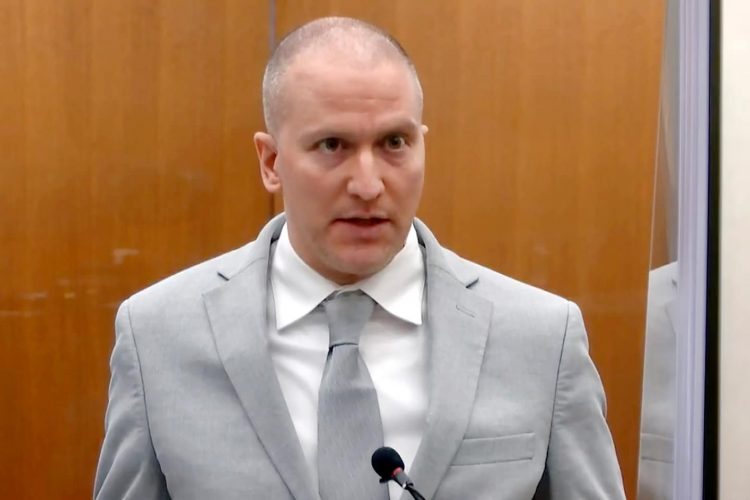Chauvin, who is White, initially pleaded not guilty to federal charges that he violated Floyd’s constitutional rights. But late last year, he pleaded guilty to one count of violating Floyd’s civil rights and one count of violating the rights of a teenager in another case; prosecutors said they would dismiss other charges and recommend a sentence to be served concurrently with his prison time for the murder conviction.
“It’s a good day for justice,” Floyd’s brother, Philonise Floyd, said in court in December as Chauvin entered his plea. In a joint statement issued at the time, attorneys for Floyd’s family said the development showed progress toward holding police officers accountable.
“We must all keep marching,” wrote lawyers Ben Crump, Antonio Romanucci and Jeff Storms. “We must all keep fighting against injustice. We must do this for George, to ensure that his one life and shocking death will change the future for countless others.”
An attorney for Chauvin did not immediately respond to The Washington Post’s request for comment Wednesday afternoon.
Three other ex-officers from Minneapolis — all present during Floyd’s killing — were found guilty of violating Floyd’s rights in February after a month-long trial that centered on officers’ responsibilities when a colleague abuses their badge. The jury concluded that J. Alexander Kueng, Thomas K. Lane and Tou Thao failed to render medical aid to Floyd, and it held Kueng and Thao responsible for not intervening.
Under the federal plea deal, Chauvin admitted to depriving Floyd of “the right to be free from an unreasonable seizure, which includes the right to be free from the use of unreasonable force by a police officer.” On May 25, 2020, court documents state, Chauvin kept his knee on Floyd’s neck and body even after the 46-year-old became unresponsive.
“The defendant admits that in using this unreasonable and excessive force, he acted willfully and in callous and wanton disregard of the consequences to Mr. Floyd’s life,” the plea agreement states. It says Chauvin’s actions resulted in Floyd’s death and noted that he was trained that officers should stop using force when someone is not resisting, among other imperatives.
U.S. District Judge Paul A. Magnuson wrote Wednesday that the court had waited to accept Chauvin’s federal plea until a “preliminary presentence investigation” report came out.
“That report has now issued, and acceptance of the plea is appropriate,” Magnuson said, and the court will sentence Chauvin under its terms.
The plea deal said the court should sentence Chauvin to no less than 20 years in prison and no more than 25 years.
Last year, a jury found Chauvin guilty of second-degree unintentional murder, third-degree murder and second-degree manslaughter after sometimes-emotional testimony from family, experts, officials and bystanders who had protested Floyd’s treatment in vain. Chauvin’s state trial focused heavily on the cellphone video that made Floyd’s killing a worldwide outrage.
The video, shot by a teenage onlooker, recorded Floyd saying “I can’t breathe” before going limp and silent. Chauvin’s trial became to many a key test of the justice system amid outrage over the use of excessive force by law enforcement and racism in America.
Holly Bailey contributed to this report.












